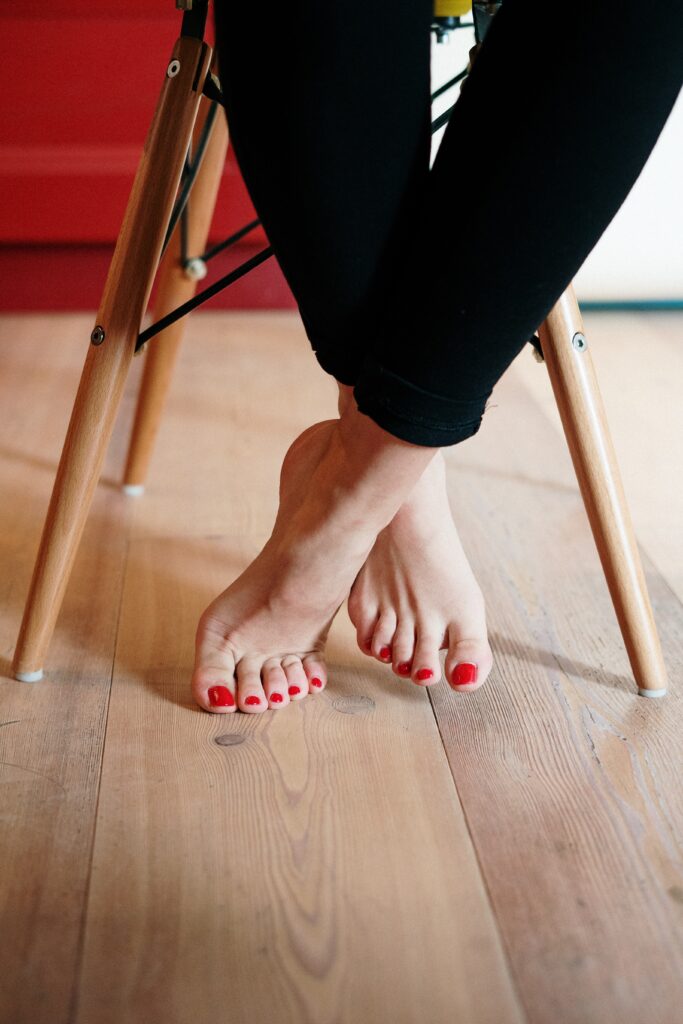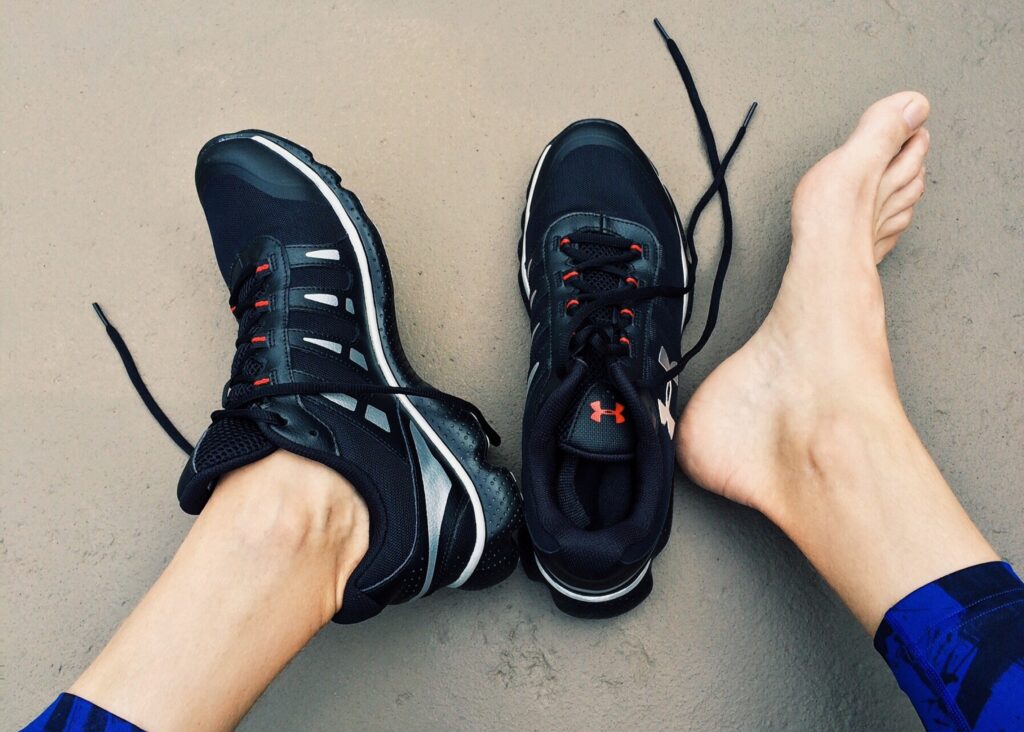How To Soothe Sore Heels After A Long Day

Sore heels are a common problem that many people experience after a long day of standing or walking. If you’re one of those people who often find yourself dealing with this issue, there are several things you can do to soothe your sore heels and find relief. In this blog post, we’ll discuss some tips for how to soothe sore heels after a long day.
Take off your shoes
The first thing you should do when you get home after a long day is to take off your shoes. This will help your feet breathe and allow your heels to relax. If you’ve been wearing tight or uncomfortable shoes, this will also give your feet a chance to stretch and relieve some of the pressure.
Soak your feet
Soaking your feet in warm water can help soothe sore heels. Add some Epsom salts to the water for extra relief. The salts can help reduce inflammation and ease pain. Soak your feet for 15-20 minutes and then dry them thoroughly.
Massage your feet
Massaging your feet can help improve blood flow and relieve tension in your heels. You can use a tennis ball or a rolling pin to roll under your feet. Or, you can use your hands to massage your feet. Start at your toes and work your way up to your heels.
Use ice
If your heels are really sore and swollen, using ice can help reduce inflammation and numb the pain. Wrap an ice pack in a towel and place it on your heels for 15-20 minutes. Don’t leave it on for too long, as this can cause tissue damage.
Stretch your feet
Stretching your feet can help relieve tension and improve flexibility. Sit on the floor with your legs extended in front of you. Flex your feet so that your toes point up toward the ceiling. Hold for 10-15 seconds and then relax. Repeat this 3-4 times.
Wear supportive shoes
Wearing supportive shoes can help prevent sore heels in the first place. Look for shoes with good arch support and cushioning. Avoid shoes with high heels or flat soles, as these can put extra pressure on your heels.
Elevate your feet
Elevating your feet can help reduce swelling and relieve pressure on your heels. Lie down on a comfortable surface and prop your feet up on a few pillows or a footrest. Keep your feet elevated for 15-20 minutes to help improve blood flow and reduce inflammation.
Use foot pads or inserts
Using foot pads or inserts can help provide extra cushioning and support for your heels. Look for pads or inserts specifically designed for heel pain or plantar fasciitis. You can insert them into your shoes for added comfort and support throughout the day.
Try over-the-counter pain relief
Over-the-counter pain relief medications like ibuprofen or acetaminophen can help relieve pain and reduce inflammation in your heels. Follow the instructions on the packaging and don’t exceed the recommended dosage.
Rest and take it easy
If your heels are really sore, it’s important to give them some rest and take it easy. Avoid standing or walking for long periods of time and give your heels time to heal. You can also try wearing a soft brace or compression sleeve to help support your feet and reduce pain.
Use foot rollers
Foot rollers are another great tool for soothing sore heels. They can help to relieve tension and massage the soles of your feet. Simply roll your feet over the foot roller for a few minutes each day to help improve blood flow and reduce pain.
Consider orthotics
If you experience recurring sore heels, it may be a good idea to invest in custom orthotics. These are special shoe inserts that are designed specifically for your feet and can help to correct any underlying issues that may be causing your heel pain.
Wear shoes that fit properly
Wearing shoes that fit properly is key to preventing sore heels. Be sure to choose shoes that are the right size and shape for your feet, and that provide good arch support and cushioning. Avoid shoes that are too tight or too loose, as these can cause rubbing and friction that can lead to heel pain.
Try foot exercises
There are many different exercises you can do to help prevent and alleviate sore heels. Toe curls, calf stretches, and ankle rotations are all good options. You can also try standing on your tiptoes for a few seconds at a time to help stretch your calf muscles.
Stay hydrated
Finally, staying hydrated is important for maintaining good foot health. Be sure to drink plenty of water throughout the day to help keep your feet healthy and hydrated. This can help to prevent sore heels and other foot problems.


